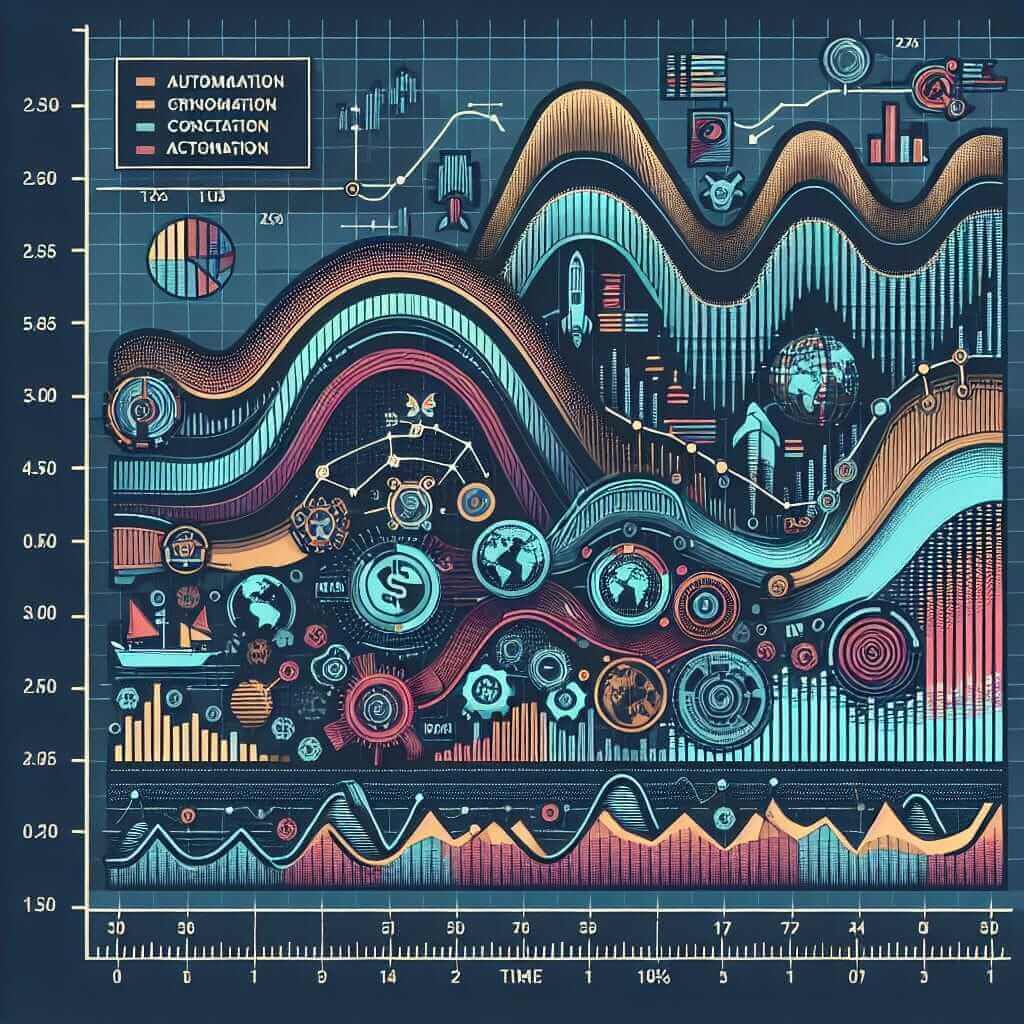The IELTS Reading test is a key component of the exam, designed to evaluate your ability to understand and interpret written English. One topic that has recently garnered significant interest and is highly relevant to global economic discussions is the impact of automation. This article will provide a comprehensive practice exercise tailored to the IELTS Reading test format, focusing on “What are the Effects of Automation on the Global Economy?” Considering the prevalence of this topic in contemporary discourse, its likelihood of appearing in future IELTS exams is high.
Reading Passage
The Effects of Automation on the Global Economy
Automation, the use of technology to perform tasks without human intervention, has become a transformative force in the global economy. This trend, driven by advancements in artificial intelligence (AI) and machine learning, is reshaping industries, labor markets, and economic structures worldwide.
Historically, automation began with the industrial revolution when machines started performing repetitive tasks in manufacturing. However, modern automation extends beyond physical tasks to cognitive functions such as data analysis, decision-making, and even creative processes.
One significant effect of automation is increased productivity. Machines can operate around the clock without fatigue, leading to higher output and efficiency. For instance, automated assembly lines in automotive manufacturing have reduced production times and costs, enabling companies to offer products at competitive prices.
Conversely, automation poses challenges to the labor market. As machines become capable of performing tasks previously done by humans, certain jobs are at risk of becoming obsolete. For example, the advent of self-checkout systems in retail has decreased the need for cashiers. This phenomenon can lead to job displacement and requires workers to upskill or transition to new roles.
Additionally, automation contributes to economic growth. By optimizing production processes and reducing labor costs, businesses can expand operations and invest in innovation. This leads to the creation of new industries and opportunities, driving economic development.
However, the benefits of automation are not evenly distributed. Advanced economies with access to cutting-edge technologies stand to gain more compared to developing nations. This disparity can exacerbate global inequalities and necessitates international cooperation to ensure a balanced and inclusive approach to automation.
In conclusion, while automation presents significant advantages, such as increased productivity and economic growth, it also brings challenges like job displacement and inequality. Policymakers and business leaders must collaborate to harness the benefits of automation while mitigating its adverse effects on the global economy.

Questions
Multiple Choice (Choose ONE answer)
-
According to the passage, what has driven the modern trend of automation?
- A. Trade liberalization
- B. Artificial Intelligence and Machine Learning
- C. Globalization
- D. Increase in human labor
-
What is one major benefit of automation mentioned in the text?
- A. Increased need for human labor
- B. Higher production costs
- C. Increased productivity
- D. Decreased productivity
Identifying Information (True/False/Not Given)
-
Automation has resulted in higher production costs.
- True
- False
- Not Given
-
Self-checkout systems have reduced the need for cashiers in retail.
- True
- False
- Not Given
Summary Completion
Complete the summary below using words from the passage.
Automation enhances productivity and efficiency as machines can operate without ____(5). This leads to higher output and reduced ____(6) times. However, it also causes job displacement, necessitating workers to ____(7) or transition to new roles.
Answers
- B. Artificial Intelligence and Machine Learning
- C. Increased productivity
- False
- True
- fatigue
- production
- upskill
Common Mistakes
- Misinterpreting Keywords: Candidates often confuse keywords in the question and text. Always match the exact wording.
- Time Management: Spend too much time on one question. Allocate time efficiently to answer all questions.
- Neglecting Instructions: Failing to follow instructions such as the number of words for summary completion can lead to errors.
Vocabulary
- Automation (n): [ˌɔːtəˈmeɪʃən] – The use of machines and technology to make processes run on their own without human intervention.
- Obsolete (adj): [ˈɒbsəliːt] – No longer in use; out of date.
- Disparity (n): [dɪˈspærɪti] – A great difference.
- Fatigue (n): [fəˈtiːɡ] – Extreme tiredness resulting from mental or physical exertion.
Grammar Focus
- Passive Voice: Used to emphasize the action rather than the performer (e.g., “Modern automation extends beyond physical tasks”).
- Structure: [Subject] + [To be] + [Past Participle] + [Optional Agent].
- Example: “Automated assembly lines in automotive manufacturing have reduced production times.”
Advice for High IELTS Reading Scores
- Practice Regularly: Familiarize yourself with different topics and question types.
- Develop Skimming and Scanning Skills: Quickly identify main ideas and specific information.
- Build Vocabulary: Enhance your lexical resource by learning new words daily.
- Time Management: Practice under timed conditions to improve your speed and accuracy.
By following these strategies and understanding the effects of automation on the global economy, you will be better prepared for the IELTS Reading test. For further practice, consider exploring how technology influences the gig economy at How is Technology Influencing the Future of the Gig Economy.